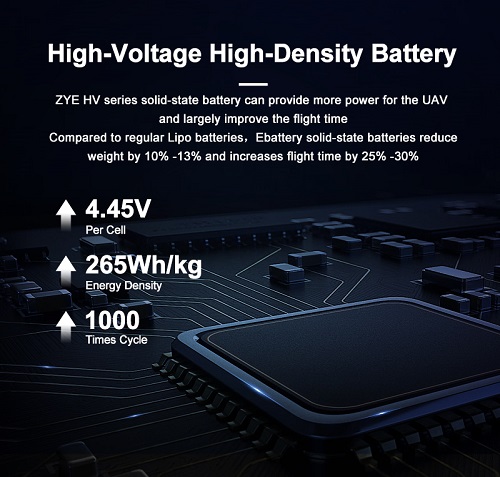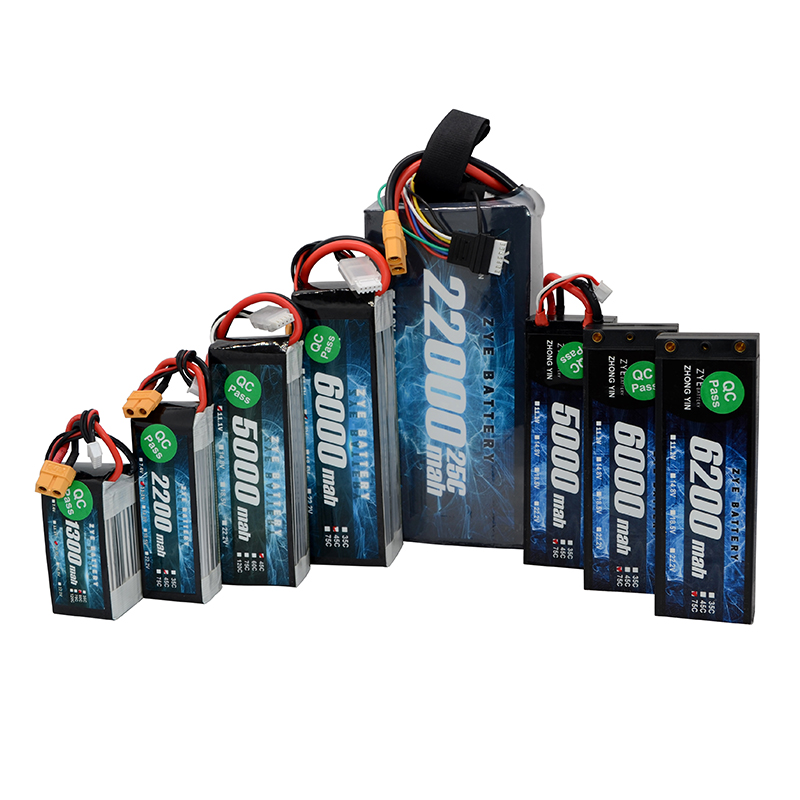Are solid state batteries more environmentally friendly?
2025-02-12
As the world grapples with climate change and environmental concerns, the quest for sustainable energy solutions has never been more crucial. One technology that's garnering significant attention is solid state batteries stock. These innovative power sources promise not only improved performance but also potential environmental benefits. In this blog post, we'll explore whether solid state batteries truly offer a greener alternative to traditional lithium-ion batteries and what this could mean for our planet's future.
How Solid State Batteries Could Impact Sustainability
Solid state batteries represent a leap forward in battery technology. Unlike conventional lithium-ion batteries, which use liquid electrolytes, solid state batteries employ solid electrolytes. This fundamental difference opens up a world of possibilities for sustainable energy storage.
One of the most significant ways solid state batteries could impact sustainability is through their potential for increased longevity. These batteries are expected to have a longer lifespan than their liquid electrolyte counterparts, which means fewer batteries would need to be produced and disposed of over time. This reduction in battery turnover could lead to decreased resource extraction and manufacturing emissions.
Moreover, solid state batteries are theorized to be more efficient in their energy storage and delivery. This improved efficiency could translate to less energy waste during charging and discharging cycles, ultimately reducing the overall energy demand from power grids. As we transition towards renewable energy sources, this efficiency gain could play a crucial role in managing our energy resources more sustainably.
The safety improvements offered by solid state batteries stock also contribute to their potential environmental benefits. These batteries are less prone to thermal runaway, which is a common cause of fires in traditional lithium-ion batteries. Reduced fire risk means fewer incidents of environmental contamination from battery fires and less need for fire suppression systems, which often use environmentally harmful chemicals.
Exploring the Environmental Benefits of Solid State Batteries
When we delve deeper into the environmental aspects of solid state batteries, several key benefits emerge that could significantly reduce their ecological footprint compared to conventional batteries.
Firstly, the materials used in solid state batteries offer some environmental advantages. Many solid electrolytes being developed are made from abundant, non-toxic materials. This contrasts with some components in traditional lithium-ion batteries, which rely on rarer elements that require extensive mining operations. By utilizing more readily available materials, solid state batteries could potentially reduce the environmental impact associated with resource extraction.
Another environmental benefit lies in the manufacturing process. Solid state batteries may require less energy-intensive production methods compared to liquid electrolyte batteries. This could result in lower carbon emissions during the manufacturing phase, contributing to a smaller carbon footprint for each battery produced.
The improved energy density of solid state batteries stock is another factor that could yield environmental benefits. With higher energy density, these batteries can store more power in a smaller space. For applications like electric vehicles, this could mean lighter batteries, leading to improved vehicle efficiency and potentially increased driving range. The ripple effect of this improvement could be significant - more efficient electric vehicles could accelerate the transition away from fossil fuel-powered transportation, a major contributor to global carbon emissions.
Furthermore, the potential for solid state batteries to operate effectively at a wider range of temperatures could reduce the need for energy-intensive cooling systems in battery packs. This would not only improve overall energy efficiency but also eliminate the use of coolants, some of which can be environmentally harmful.

Is Investing in Solid State Batteries a Green Choice?
As we consider the environmental implications of solid state batteries, it's natural to wonder whether investing in this technology - either as a consumer or an investor - is a green choice. The answer, while promising, is not yet definitive.
On the positive side, the potential environmental benefits of solid state batteries are substantial. If the technology lives up to its promise, it could play a significant role in our transition to cleaner energy systems and more sustainable transportation. Supporting the development and adoption of solid state batteries could contribute to reducing global carbon emissions and resource consumption in the long term.
However, it's important to note that solid state batteries stock are still in the early stages of development and commercialization. While laboratory results are promising, large-scale production and real-world performance data are limited. As with any new technology, there may be unforeseen challenges or environmental impacts that only become apparent as the technology matures.
Additionally, the environmental impact of solid state batteries will depend significantly on how they are manufactured, used, and recycled at scale. Even if the batteries themselves are more environmentally friendly, their production and disposal processes must also be sustainable to truly make them a green choice.
Investors considering solid state battery stocks should also be aware that while the technology has great potential, it's still an emerging field. As with any investment, thorough research and understanding of the risks involved are crucial.
Despite these caveats, the potential environmental benefits of solid state batteries make them a technology worth watching and supporting. As research progresses and more data becomes available, we'll gain a clearer picture of just how green this battery technology can be.
In conclusion, while solid state batteries show great promise in terms of environmental friendliness, it's important to approach the technology with informed optimism. The potential benefits are significant, but realizing these benefits will require continued research, development, and careful implementation. As we move forward, keeping sustainability at the forefront of technological advancement will be key to ensuring that innovations like solid state batteries truly contribute to a greener future.
Are you interested in learning more about solid state batteries stock and their potential impact on the environment? We'd love to hear from you! Contact us at cathy@zyepower.com for more information on our solid state battery solutions and how they can contribute to a more sustainable future.
References
1. Smith, J. (2023). "The Environmental Impact of Solid State Batteries: A Comprehensive Review". Journal of Sustainable Energy Technologies.
2. Green, A. & Brown, B. (2022). "Comparative Life Cycle Analysis of Lithium-Ion and Solid State Batteries". Environmental Science & Technology.
3. Johnson, M. et al. (2023). "Solid State Batteries: Paving the Way for Greener Transportation". Renewable and Sustainable Energy Reviews.
4. White, R. (2022). "Material Considerations in Solid State Battery Manufacturing: An Environmental Perspective". Advanced Energy Materials.
5. Lee, S. & Park, K. (2023). "The Role of Solid State Batteries in Achieving Global Sustainability Goals". Nature Energy.
























































